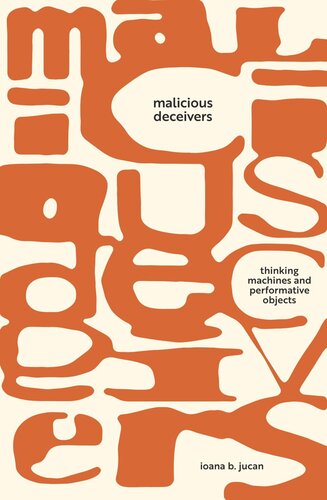

Most ebook files are in PDF format, so you can easily read them using various software such as Foxit Reader or directly on the Google Chrome browser.
Some ebook files are released by publishers in other formats such as .awz, .mobi, .epub, .fb2, etc. You may need to install specific software to read these formats on mobile/PC, such as Calibre.
Please read the tutorial at this link: https://ebookbell.com/faq
We offer FREE conversion to the popular formats you request; however, this may take some time. Therefore, right after payment, please email us, and we will try to provide the service as quickly as possible.
For some exceptional file formats or broken links (if any), please refrain from opening any disputes. Instead, email us first, and we will try to assist within a maximum of 6 hours.
EbookBell Team

4.7
26 reviewsIn Malicious Deceivers, Ioana B. Jucan traces a genealogy of post-truth intimately tied to globalizing modernity and connects the production of repeatable fakeness with capitalism and Cartesian metaphysics. Through case studies that cross times and geographies, the book unpacks the notion of fakeness through the related logics of dissimulation (deception) and simulation (performativity) as seen with software/AI, television, plastics, and the internet. Specifically, Jucan shows how these (dis)simulation machines and performative objects construct impoverished pictures of the world, ensuring a repeatable sameness through processes of hollowing out embodied histories and lived experience.
Through both its methodology and its subjects-objects of study, the book further seeks ways to counter the abstracting mode of thinking and the processes of voiding performed by the twinning of Cartesian metaphysics and global capitalism. Enacting a model of creative scholarship rooted in the tradition of writing as performance, Jucan, a multimedia performance-maker and theatre director, uses the embodied "I" as a framing and situating device for the book and its sites of investigation. In this way, she aims to counter the Cartesian voiding of the thinking "I" and to enact a different kind of relationship between self and world from the one posited by Descartes and replayed in much Western philosophical and — more broadly — academic writing: a relationship of separation that situates the "I" on a pedestal of abstraction that voids it of its embodied histories and fails to account for its positionality within a socio-historical context and the operations of power that define it.